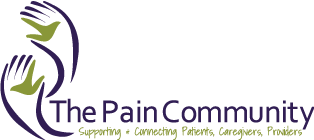Handbook of Pain Relief in Older Adults: An Evidence-Based Approach

The second edition of the Handbook of Pain Relief in Older Adults: An Evidence-Based Approach expands on the first edition by providing a number of timely new features. Most important of these are the revised recommendations from the American Geriatrics Society on prescribing that reflect the many new agents available since the last guidelines were More Info »
Listening to Pain (A Physician’s Guide to Improving Pain Management Through Better Communication)

In this groundbreaking book, Dr. Fishman shows how communicating better with patients about their pain can help physicians create safer and more effective treatment strategies. Listening to Pain offers physicians a wealth of practical guidance about asking the right questions and assessing patient responses, including: What questions to ask pain patients when they first present More Info »
The War on Pain: How Breakthroughs in the New Field of Pain Medicine Are Turning the Tide Against Suffering

For centuries, pain has been our most formidable and elusive adversary. But astounding breakthroughs in pain medicine have turned the tide in the age-old battle against suffering. In this comprehensive book, eminent pain specialist Scott Fishman, M.D., takes us to the front lines of this war, arming readers with the information–and inspiration–they need to understand More Info »
Bonica’s Management of Pain

Now in its Fourth Edition, with a brand-new editorial team, Bonica’s Management of Pain will be the leading textbook and clinical reference in the field of pain medicine. An international group of the foremost experts provides comprehensive, current, clinically oriented coverage of the entire field. The contributors describe contemporary clinical practice and summarize the evidence More Info »
Responsible Opioid Prescribing (A Physician’s Guide)

Responsible Opioid Prescribing: A Clinician’s Guide offers clinicians effective strategies for reducing the risk of addiction, abuse and diversion of opioids that they prescribe for their patients in pain. Written by pain medicine specialist Scott M. Fishman, M.D., this new edition, updated in September 2014, includes new information on Model Guidelines, FDA labeling, and preventing opioid More Info »
A Clinical Guide to Opioid Analgesia

A Clinical Guide to Opioid Analgesia is designed to guide clinicians in the responsible use of opioid analgesics for the treatment of pain. It helps practitioners make practical sense of varied pharmacologic, clinical, and regulatory issues surrounding opioid therapy as they work to obtain the most healthful outcomes possible for their patients. Opioid analgesics can More Info »
The Brain That Changes Itself: Stories of Personal Triumph from the Frontiers of Brain Science

An astonishing new science called neuroplasticity is overthrowing the centuries-old notion that the human brain is immutable. Psychiatrist and psychoanalyst, Norman Doidge, M.D., traveled the country to meet both the brilliant scientists championing neuroplasticity and the people whose lives they’ve transformed—people whose mental limitations or brain damage were seen as unalterable. We see a woman More Info »
The OIH Paradox: Can Opioids Make Pain Worse?

In an early essay describing his clinical observations of patients injecting morphine on a daily basis, physician/author Clifford Albutt [1870] wondered, “Does morphia tend to encourage the very pain it pretends to relieve?” He continued, “I have much reason to suspect that a reliance upon hypodermic morphia only ended in a curious state of perpetuated More Info »
Fast Facts: Chronic Pain

Chronic pain has a broad range of physical and psychological pathologies, and it is through persistent pain that many of the greatest health burdens worldwide – cancer, HIV/AIDS, diabetes, arthritis, alcoholism and trauma – exact their long-term human, social and economic toll. Patients expect the best possible quality of life, and a multidisciplinary team approach More Info »
Core Curriculum for Pain Management Nursing

This resource, sponsored by the American Society of Pain Management Nurses (ASPMN) covers the entire spectrum of topics in the practice of pain management nursing. Leaders in pain management explore the foundations of pain management nursing, clinical practice protocols, advances in practice roles; and the unique role of the pain management nurse.
